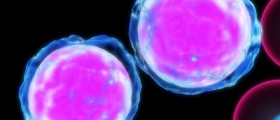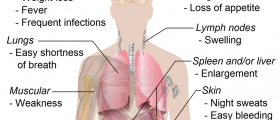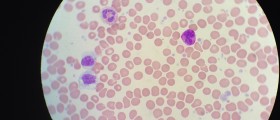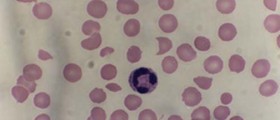
What is Fanconi anemia?
Fanconi anemia is a rare genetic disease that affects one out of every 350.000 newborns, and it is prevalent among Ashkenazi Jews and Africaners from South Africa.
This disease, which is a result of certain abnormalities in a cluster of proteins responsible for DNA repair, usually leads to serious diseases. For example, more than 20% of people diagnosed with Fanconi anemia develop cancer, usually myelogenous leukemia, while as much as 90% of the patients develop bone marrow failure.
In addition, most persons with this disease have some sort of congenital defect, such as short stature, developmental disabilities or abnormalities with ears, kidneys, head, eyes, skin or arms.
Life span of persons with Fanconi anemia is short and the median age of death is 30 years.
This disease is named after Guido Fanconi, a Swiss doctor who first described it, and it should to be confused with Fanconi syndrome, which affects the kidneys and is named after the same doctor.
Treatment and prognosis
In most cases the initial treatment consists of androgens and hematopoietic growth factors but they are not efficient for most patients, just for 50 to 75 percent of them. Ishematopoietic stem cell transplantation seems to be a more permanent solution, but donors are not always available. Savior siblings can be conceived when there are not other donors, but that solution is still a bit controversial and not everyone accepts it.
As it is mentioned above, most patients develop hematological abnormalities and diseases such as myelogenous leukemia or bone marrow failure.
Acute myeloid or myelogenous leukemia is a cancer that affects the myeloid line of blood cells. The risk of developing this type of blood cancer becomes higher with age.
Bone marrow failure is another complication that occurs frequently in patients with Fanconi anemia. It is characterized by inadequate production of blood cells.
Treatment options that are usually available for Fanconi anemia, like androgens and hematopoietic growth factors, were actually found to promote leukemia, which is why such therapy is not ideal for patients who have already developed bone marrow failure. In such cases transplantation of the bone marrow is the best solution, provided there is a viable donor. The success rate of transplantations with unrelated donors is very low and it is important to use the bone marrow from an HLA-identical sibling.
It is clear from all this that the prognosis for patients diagnosed with Fanconi leukemia is not a very good one.

















Your thoughts on this
Loading...